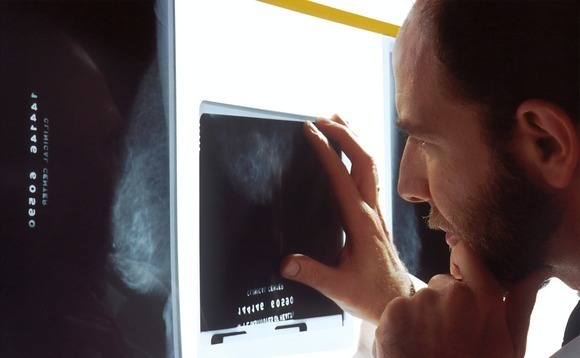
Deal focus: ICG finds alignment with doctor-shareholders

Intermediate Capital Group believes its flexible approach to deal structuring – and a willingness to share upside – helped win over doctors who are employees and part-owners of Canopy Healthcare
Intermediate Capital Group's (ICG) calling card as an equity investor could be described as accommodating the unorthodox. It offers flexible financing solutions to companies, combining equity and debt as required, a reference to its early days in Asia as a mezzanine capital provider.
"We started out as the guy in the middle, between senior debt and equity. We're used to not being in the driver's seat and so we are comfortable with an equity strategy based on being supportive to the key stakeholder," said Wooseok Jun, ICG's Asia Pacific head of equity and mezzanine.
The firm's business in the region has evolved to the point where it encompasses three strategies: sponsorless or corporate transactions, structured to suit the needs of the investee; mezzanine finance, which includes some senior debt coverage in Australia; and balance sheet repair and restructuring for companies nearing the point of distress but not yet on the brink.
ICG's latest investment from its fourth Asia Pacific fund fits the sponsorless profile by virtue of a structure designed to accommodate and incentivise a stakeholder group crucial to the target company's prospects: medical practitioner-shareholders.
Many corporatized healthcare services groups in Australia and New Zealand are amalgamations of multiple smaller, doctor-owned practices. The private equity thesis is that consolidation delivers economies of scale and synergies, but investors must ensure they are aligned with the doctors in each practice who often roll their equity into parent entity on acquisition.
There have been instances in which this alignment has fractured, leading to doctor departures. ICG believes it has taken steps to minimise the chances of such an outcome with its acquisition of a majority stake in Canopy Healthcare Group, a New Zealand-based healthcare platform that offers diagnostic imaging, medical oncology, and drug compounding services.
"Everyone says they use their expertise in structuring to make sure there is full alignment, but when it comes to the incentive structure and how we share the upside, the way we approach these situations is different from someone who is used to buying 100% of a business all the time," said Jun.
"How we do this depends on the current capital structure, whether there is any debt, and whether it's a roll-up play with more acquisitions expected. If the doctors are driving value appreciation, we are happy to look at increasing their equity or sharing more of the upside. It's done in various forms."
Jun declined to go into specifics regarding the deal structure or valuation, although the equity cheque is said to be near to the firm's USD 100m sweet spot. The plan is to pursue greenfield and brownfield expansion, adding to a network that currently encompasses 19 diagnostic clinics, five oncology clinics, and a private breast surgical and diagnostic centre, plus drug compounding.
Diagnostic chain TRG Imaging is the largest part of the business, accounting for more than half of revenue. Other brands include Auckland Breast Centre, Canopy Cancer Care, and Imix. New Zealand GP Waterman Capital owned TRG from 2018 through 2020 when it was sold to Canopy. The PE firm received a position in Canopy, which has been exited to ICG as part of the latest transaction.
Canopy is the largest diagnostic player on New Zealand's North Island and the largest private medical oncology provider nationwide. Competitors include Permira-owned I-Med, which expanded from Australia into New Zealand last year through acquisitions of Hamilton Radiology and Midland MRI.
"It was the only player we looked at that wasn't siloed in oncology or imaging. It is a truly integrated platform with drug compounding as well," said Jun. He noted that ICG's past investments in Australian healthcare – with Cura Day Hospitals and Everlight Radiology – was a significant factor as it enabled Canopy's doctor-shareholders to talk to peers about their experiences working with the GP.
Everlight was exited as recently as last year to Livingbridge, underling the prevalence of sponsor-to-sponsor sales in Australia and New Zealand. Half of the approximately 15 private equity transactions in healthcare across both countries since the start of 2021 have facilitated exits for existing financial investors, according to AVCJ Research.
"Our pipeline is robust in Australia and New Zealand. A lot of capital has been raised and we are looking for attractive opportunities in developed Asia. And with some developing markets in Asia not being able to absorb as much new capital as before, the deals must come from somewhere," Jun added.
"At the same time, there are more and more companies owned by private equity and those need to come out. We are seeing more secondary deals as a result."
Latest News
Asian GPs slow implementation of ESG policies - survey
Asia-based private equity firms are assigning more dedicated resources to environment, social, and governance (ESG) programmes, but policy changes have slowed in the past 12 months, in part due to concerns raised internally and by LPs, according to a...
Singapore fintech start-up LXA gets $10m seed round
New Enterprise Associates (NEA) has led a USD 10m seed round for Singapore’s LXA, a financial technology start-up launched by a former Asia senior executive at The Blackstone Group.
India's InCred announces $60m round, claims unicorn status
Indian non-bank lender InCred Financial Services said it has received INR 5bn (USD 60m) at a valuation of at least USD 1bn from unnamed investors including “a global private equity fund.”
Insight leads $50m round for Australia's Roller
Insight Partners has led a USD 50m round for Australia’s Roller, a venue management software provider specializing in family fun parks.







